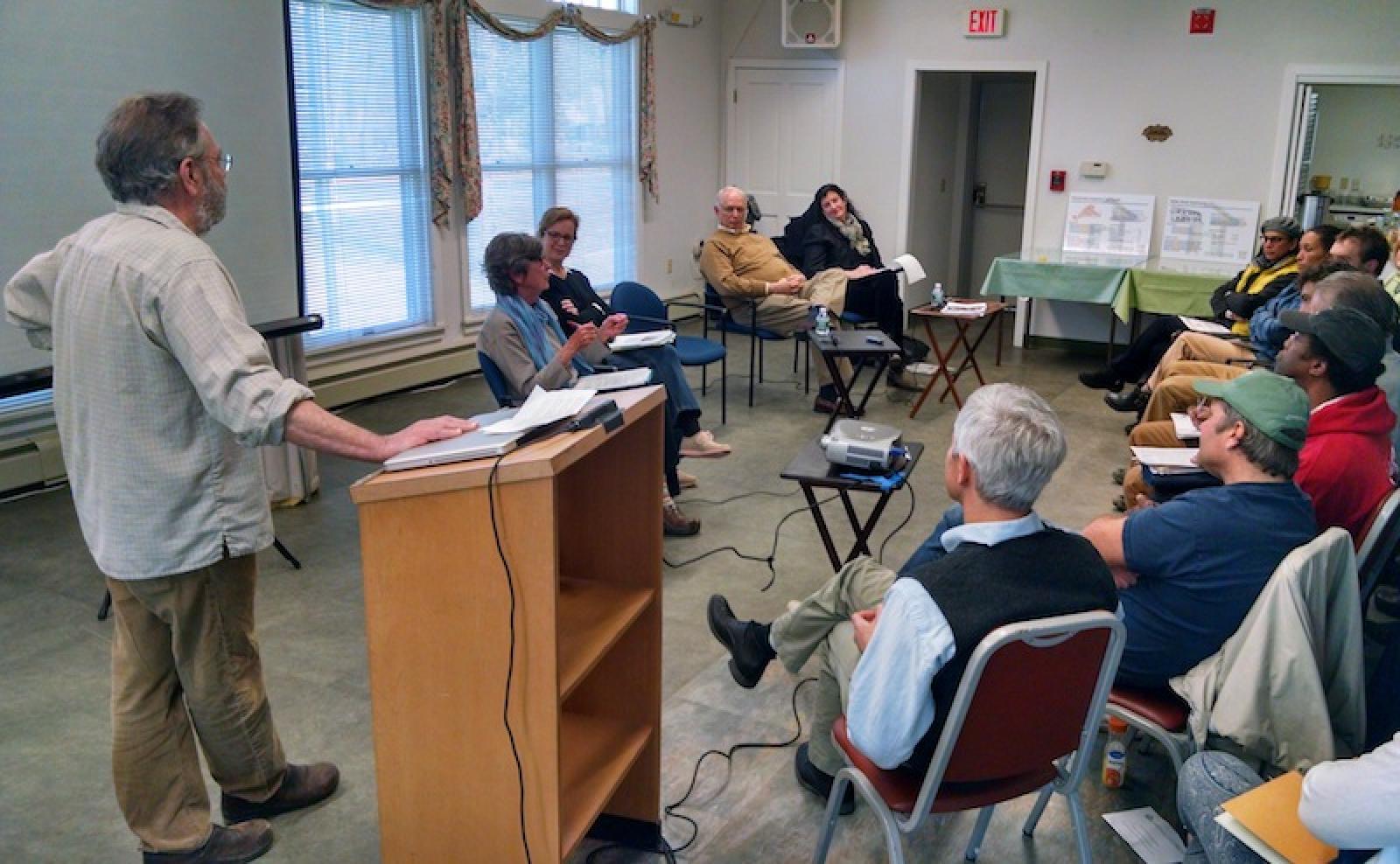About 45 minutes into the Island Housing Trust annual meeting and forum Saturday, a discussion about developing a sustainable long-term solution to the ongoing Vineyard housing crisis was interrupted. Lisa McGuire raised her hand and voiced a question that might have been asked by hundreds of Island residents.
“We have a crisis right now,” she said. “I’m going to be homeless in about six weeks. I’m not poor, I own my own business, I just can’t get housing. I need a place to live now.”
Ms. McGuire said she has been shuffling from place to place for several years and that she is grateful to the owners of an apartment she rented for part of this winter with her teenaged son. But that apartment will convert to a summer vacation rental soon.
She said she can afford $1,500 a month to rent a two-bedroom apartment, but after months of looking, has found only grossly substandard living spaces or has been foiled by credit record problems. She is on a waiting list for the Dukes County Regional Housing Authority rental assistance program, but there are more than 100 families on the waiting list, and according to executive director David Vigneault, there are no more owners of market rate apartments currently willing to participate in the program. She said she sees no point in getting on the waiting list at Edgartown’s Morgan Woods development, because there are more than 200 families on the waiting list there, and she needs a place to live in six weeks.
The work of the Island Housing Trust includes having built 58 homes and 11 rental units since 2002 for people eligible under income guidelines. Three more homes and six more rental units are under development. But housing executive director Philippe Jordi acknowledged that there are few options for Island residents who most need housing. He estimated that there are about 500 housing units on the Vineyard restricted for rental to families that earn less than the area median income.
“Most of the rental units are servicing people at 60 per cent or less of AMI, which is considered low income,” Mr. Jordi said. “People at extremely low income, people living on fixed incomes, are under served.”
Rick Presbrey, a member of the Island Elderly Housing board of directors and founder of the Hyannis-based Housing Assistance Corporation, offered a blunt assessment of the enormous demand for affordable housing.
“We’ve helped 160,000 people on the Cape and Islands and I feel like we’ve failed,” Mr. Presbrey said. “It isn’t because we haven’t been aggressive, it’s because our government has turned around its commitment to affordable housing. In the 1980s there were multiple housing development programs on the federal and state level. They have all gone away. It’s getting harder, not easier. It should have gotten easier.”
During the annual meeting for the housing trust, Mr. Jordi outlined a goal of increasing the number of affordable housing units to 180 by the year 2020.
Speaking to the Gazette by telephone after the meeting, he said the trust is working to build resources, including staff and funding, and create new partnerships with towns and other nonprofit organizations on and off the Island. Mr. Jordi said with the well-demonstrated need for rental housing, IHT will continue to devote resources to that aspect of the housing shortage.
“We’ve always tried to make rental work,” he said. “It’s harder for various reason. We know it’s a great need, it’s more challenging to do.”
In its annual report released this week, IHT cites increased success in fund raising and construction of new housing. According to the report, 2014 donations increased by 60 per cent from the previous year, and the number of individual contributors increased by 55 per cent.
The organization reported total income of $1.8 million. Of that, 62 per cent came from grants and donations, 21 per cent came in the form of land donations, 12 per cent from the state’s community investment tax credit program, and five per cent from ground leases and rents.
Total expenses for the year were $1.57 million. Of those expenses, 87 per cent was spent on housing development and construction, six per cent went to property management, four per cent went to administration, and three per cent went to fundraising costs. IHT spent a total of $109,614 on administration and fundraising in 2014.







Comments (36)
Comments
Comment policy »